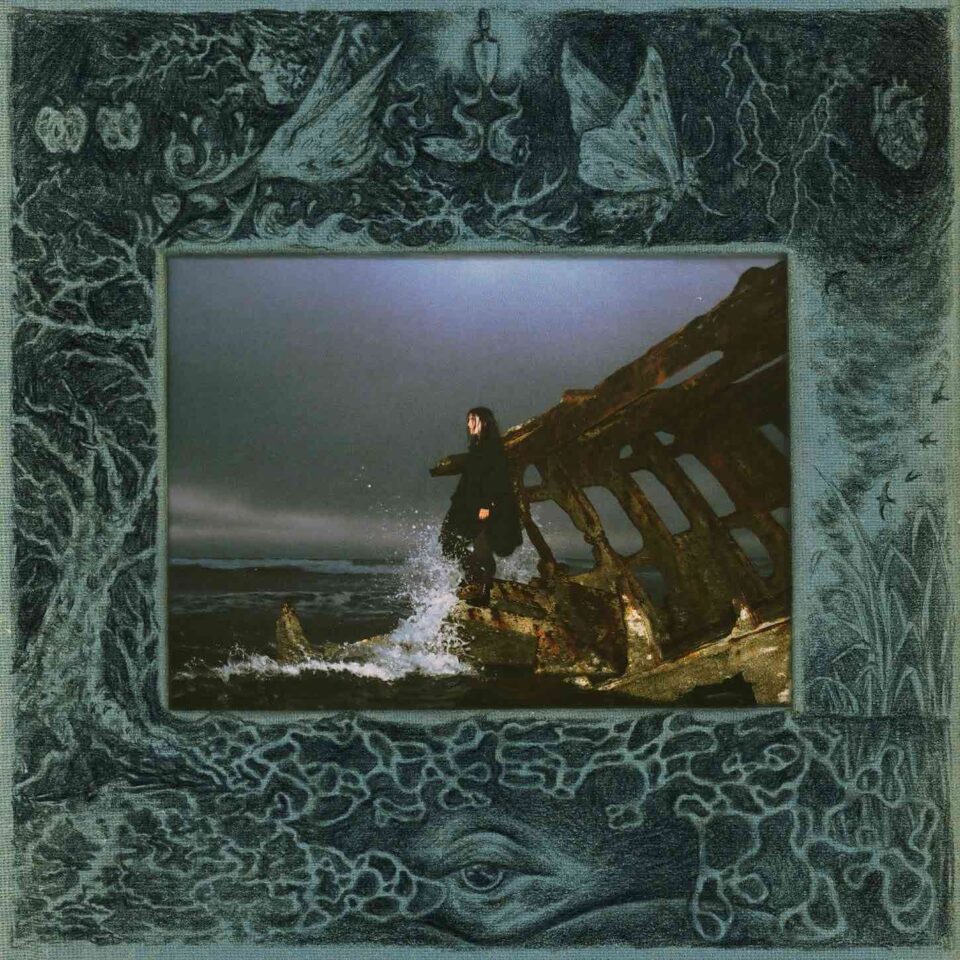“I’m moving,” The Faint’s Todd Fink tells me, explaining why he wasn’t able to complete the homework I’d assigned him for our interview. “I’m also opening the Faint tour as me and my wife’s band, CLOSENESS, so we need to get our record done in time to get it printed and pressed for that. So I’m kinda like, ‘ahh!’”
I was hoping to get Fink’s opinion on some of the music Saddle Creek has released between the time he and his band left the label they helped settle in the mid-’90s alongside members of Bright Eyes and Cursive—originally an Omaha-local cooperative called Lumberjack Records—and today, with The Faint returning to SC to release their seventh album, Egowerk. “I’m nostalgic for the days when you didn’t have to make all the content for the blogs,” he continues, laughing. “It’s a lot to do to be in a band these days.”
Over the span of the fifteen-year period from 2004’s Wet from Birth to today’s widespread artist-curated web content, the label has grown into a staple of the national indie scene, releasing critically praised music by the likes of Big Thief, Hop Along, Hand Habits, and Young Jesus. In its infancy, though, Saddle Creek was a Petri dish of melancholic folk, cynical post-hardcore, and surprisingly coherent amalgamations of the two—and then there was The Faint. “That feeling of, ‘Man, people are gonna hate this, but I love it’—that’s our favorite feeling,” explained Clark Baechle, The Faint’s drummer and Fink’s brother, in the label’s 2005 documentary An Evening with Saddle Creek. Forming an electroclash band was “the dorkiest thing you could do” in the late ’90s, Fink tells me now, but for his band it felt natural.
It was evident from their first release as The Faint, the dysphoric post-hardcore anomaly Media, that they weren’t cut out for the indie rock scene. “By the time Media came out in 1998, I really wanted to make sure we got as far away from that as we could,” Fink explains. “We were trying to step outside of our actual context, and that sort of gave us the freedom to take chances and try to intentionally polarize people.” A year later, they’d established a much more comfortable—though considerably less palatable—dance-punk sound with Blank-Wave Arcade, which has continued to evolve up to Egowerk. “At the merch table I tell people not to buy Media.”
While distinctly Faint-like, Egowerk is pretty dissimilar to anything the band has released to date. The menacing title track is as close to straightforward pulsing darkwave as The Faint has ever come, matching the irrefutably not-dorky trend set by indie labels like Felte and Dais. Similarly, the trap beat breakdowns on “Own My Eyes” feel effortlessly of-the-moment. Like their iconic Danse Macabre, each track has a distinct personality while blending seamlessly into one another.
Describing where Egowerk came from, Fink noted that the record was the electronic yin to 2014’s Doom Abuse’s rock-oriented yang: “We took a few years off at one point, and when we came back together we really just wanted to play music in a room—like, you know, rock music, punk music, just high-energy sorts of things. So we put that record out as Doom Abuse and put more of those rock-oriented things on there, planning to do a more electronic record after that. This is sort of a counterbalance.” The bass-heavy beats contrasting with Doom Abuse’s prominent live drums alone provide a jarring disconnect from their previous release, much in the same way Wet from Birth’s violin-led intro and warped Dead Kennedys take felt purposefully divergent from Danse’s synth-fuelled numbers.
“We were trying to step outside of our actual context, and that sort of gave us the freedom to take chances and try to intentionally polarize people.”
While Saddle Creek has clearly expanded its horizon considerably in terms of straying from the Omaha sound with Faint-derivative acts like O+S (another of his wife Orenda Fink’s bands) and Icky Blossoms joining the roster at the end of the ’00s—and from Omaha itself with a series of technically international signees in 2008—Fink explains that their decision to return to the label was based more on their history and familiarity with it (“We don’t really know many people,” he laughs). After releasing Doom on their manager’s assistant’s label and 2008’s Fasciination on their own short-lived Blank.Wav Records, the band felt it was easiest just to have all their work in the same place. “We know who to blame when things go wrong,” Fink adds.
Reminiscing on his history with the label, though, it seems there’s more to it than mere convenience. “We really felt encouraged,” Fink recalls of the band’s early days, shortly after dropping their original name, Norman Bailer, and the emo shtick altogether. “I think everybody was all rooting for each other to find each of our own styles that are really coming from inside, not so environmental.”
When I tell Fink I recently visited Omaha for the first time and was surprised to note how much the city feels like most of the music that originated there (“Sad?” he presumes), I also asked him how he felt that his project fit in. Though he acknowledges his band’s obvious disparity within the early Saddle Creek catalog, he’s quick to defend The Faint as falling under the vague “Omaha sound” classifier, albeit a different side of that regional coin. “I think the difference is mostly that we tend to write more observational lyrics about society and culture—we take a step back and look at everything. Whereas Saddle Creek in general is more, ‘Here’s how I feel,’ more pulling-on-the-heartstrings yearning type of sound. We were cut from that cloth: folk and personal, emotional songs and stuff were what we knew.”
It’s difficult for labels like Saddle Creek to shed the nostalgic associations they carry past their iconic come-ups, but the personal, small town–feel of the label—and, of course, all those eloquently expressed emotions—has certainly carried over to the present day. Likewise, it’s difficult for bands bred in the pre-Internet days of ’90s DIY to remain relevant in music’s online content heyday, but The Faint are continuing to carve out a highly unique persona within and outside of the context of Saddle Creek. Despite all the effort involved in modern press cycles, “it’s more fun than shoveling dirt,” Fink concludes, incidentally providing me with another idea for delegated labor to impose upon my next interview subject. FL







